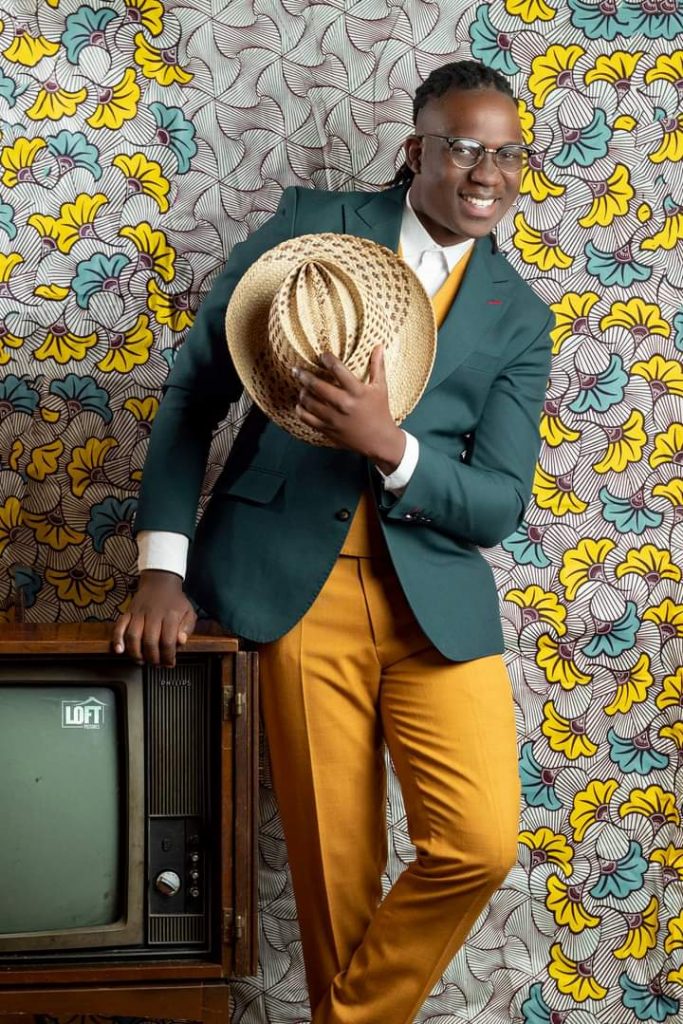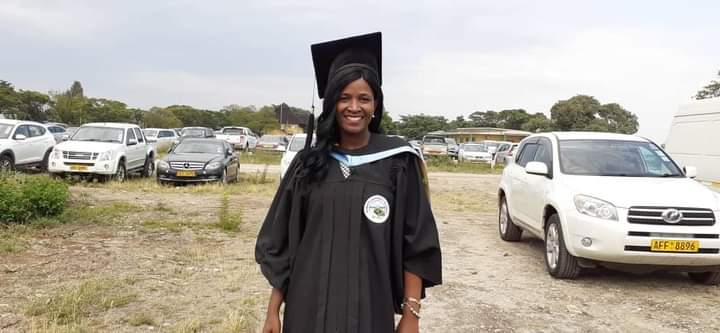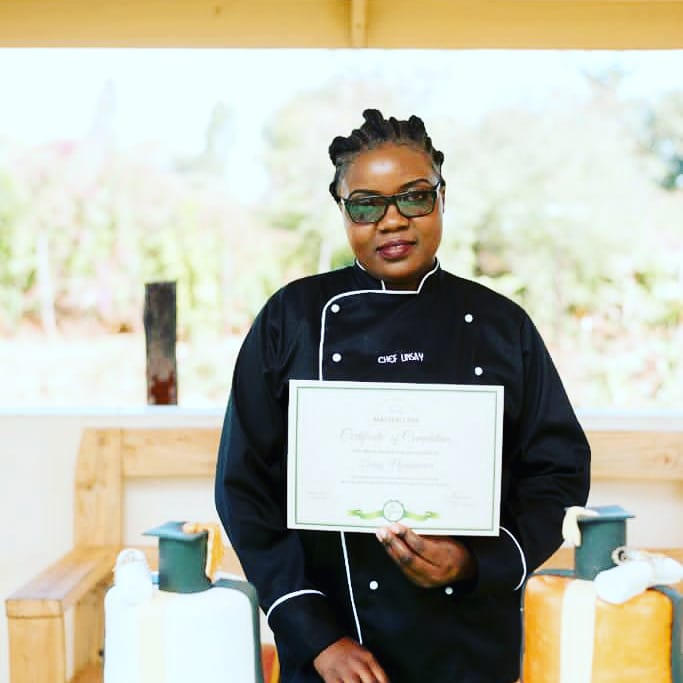2021 Issue 9 IWD Edition
Deaf Leadership personified

Marvin Tatenda Mukuyu is a Graphic Designer and a Model who has a passion for the fashion industry. Born in a family of six, Marvin suffered from meningitis at an early age which left him Deaf but through the love and support of his family has achieved a lot.
Marvin clinched the title of Mr Deaf Zimbabwe 2013 and is also a photographer, Fashion Designer and the founder CEO of The Champion Deaf Camp and Imagine Me Graphic. He is also a musician and songwriter. In 2019 he designed the Larfage Cement stand at the Zimbabwe Agricultural Show which went on to win stand of the year.
Marvin believes that the only limitations to success are the limitations we place on ourselves. He is also a Model for Econet and Jet Stores and has also participated in the SADC fashion week held in Harare where he was awarded as Inspirational Model Ambassador. He was also awarded with a Life time Achievement Award at the Zimbabwe Models Awards 2015.
Marvin has a passion to educate young people who are Deaf on the Art and Fashion industry and He also raises awareness on rights issues including raising awareness on Gender Based Violence issues. He recently released his music single ‘Mhere Mhere’ on GBV with Fruitman X which is Zimbabwe’s first Sign Language song.
Mukuyu, who is married to Felistas and a proud father of 2, says his wife supports his work of championing the cause of the people who are Deaf and promoting Deaf leadership in Zimbabwe.
He appealed to various industries to give equal opportunities to people with disabilities as they are also capable sometimes even more than people without disabilities.
No mountain too high

Tendai Dondofema made history together with 3 other ladies to become Zimbabwe’s first ever qualified social worker who is Deaf. With the barriers that currently exist in the Zimbabwe education system, one can understand why Tendai’s victory is a milestone as she has overcome great obstacles by attaining tertiary qualifications.
Tell us about your family?
I was born in a family of 4 children, one boy and three girls and I am the only one who is Deaf in my family. My parents were always supportive and encouraged me to do my best in school and to pursue my dreams. My mother passed on three years ago and I was devastated, she was my pillar of strength.
Where were you born?
I was born in Charter District
What is your favorite food?
I love Pizza and chicken and rice.
Why did you choose to study social work?
I chose to study social work because I have always wanted to advocate for the rights of people with disabilities in my community. I also wanted to further my knowledge on how to assist the Deaf community and the course helped me advance my skills, get new knowledge and open my eyes to a new world that needed to be assisted.
How do you spend your free time?
When I am at home I enjoy cooking and baking. I also enjoy watching soapies like Muvhango, Korean movies as these have captions and it is easy to understand what will be happening. I also enjoy surfing the internet taking up free courses and learning what is happening around the world
What are your future plans?
I am looking forward to advancing my education on social work hopefully getting a degree in social work soon. My passion is to help persons with disabilities therefore I would really want to start my own organisation for persons with disabilities. I want to establish an organisation that helps persons with disabilities acquire jobs in different disciplines as currently we have a lot of people who are Deaf who are doing vending in town yet they have other qualifications.
How can we improve the environment for people who are Deaf in our country?
We need to improve our country by putting laws and policies in place that support our language rights and human rights. When laws are put in place people will be obligated to follow the set rules. Communication barrier is the greatest setback for persons who are Deaf to reach their full potential.
Rev Chipoka redefining the Deaf narrative
It is not every day where you come across a church preacher who is Deaf. Reverend Mary Chipoka has changed the narrative as the first Deaf preacher in Zimbabwe with the Reformed church of Zimbabwe.
Born in 1985 to Jonathan and Egneta Chipoka, 36 year old Reverend Mary Chipoka-Zenda did her primary education at Henry Murray School and went on to do her Secondary Education at Emerald Hill. She later enrolled at the National Institute of the Deaf in Cape Town where she studied a certificate in Theology and later did the Diploma in the same course.
She is also the resident chaplain for the Henry Murray Morgenster School of the Deaf in Masvingo where she works with 250 learners who are Deaf.
Reverend Chipoka has proven that persons with disabilities are capable of taking on any responsibility despite the barriers they face. She preaches in Sign Language with the assistance of a Sign Language interpretor and has managed to preach the Gospel to many in Masvingo and beyond.
Chipoka has not only broken disability stereotypes but she has also broken religious and gender stereotypes of women leading in churches. With the right support people who are Deaf can reach their fullest potential.
Sweet moves to the top

When one thinks of career options for women who are Deaf in Zimbabwe, vending always comes up top as employers often discriminate against persons with disabilities and accessing higher education is a tall order for Deaf learners.
For 26 year old Linsay Nyakunawa, career options were limited and she decides to make a way for herself and become her own boss. Linsay is a qualified baker who has blown people away with her creative cakes and treats.
Born in Mutare and a first born in her family, Linsay had to lead by example for her siblings and show the world that it is possible for women with disabilities to be self-sustaining despite the difficult economy in Zimbabwe.
“I chose baking because I have always wanted to be a Chef when I was growing up. I love cooking and baking and I knew this was a way I could use my hands to make a living”.
Linsay took up a baking and pastry making course and has been baking cakes for people ever since. Though her family struggled to get her fees, she eventually made it through and became a qualified baker.
“It was a bit hard at first as I was starting to learn the basics but once I got the hang of it, it became easy”.
Her cake business is doing well and she urges all persons with disabilities to keep pushing and follow their dreams as the vision will lead them to the goal.
“Being a Chef is not easy but I never gave up because it has always been my dream, I bake with my heart and I cook with love”.
Linsay highlighted that when she is relaxing at home she likes trying out new recipes. She hopes to be part of Master Chef or Cake Boss and compete with other bakers worldwide.
She believes that even though there are many barriers to careers for people who are Deaf, taking on self-employment is the way to break these barriers.
“Deaf people can learn to do anything they put their minds to, it does not matter that most do not have University degrees , we can work with our hands and earn a decent living”.
Martha Mushonga; Breaking new ground
Carpentry is a profession that is male-dominated and most women find it hard to work in the sector. Martha Mushonga, the owner of Madam M’s classic furniture has managed to succeed in carpentry and has made a mark being the first woman who is Deaf to become a carpenter.
Where were you born?
I was born in Mabvuku, Harare
Tell us about your family
I am a last born in a family of 8 with only four surviving siblings. My mother passed on 20years ago and my father passed on five years ago. I grew up to have a family of my own. I’m married to a wonderful husband and we have three children.
What is your favourite food?
I enjoy eating salads, vegetables. I enjoy healthy food
Why did you decide to do carpentry?
Carpentry was an easy option for me because my husband has been in the field for more than 20 years and it’s the only field where people who are Deaf enjoy good working relations. Most Deaf people find it easy to adjust to carpentry since there is no need for a lot of qualifications. I also enjoy being creative with furniture. I understand carpentry, tools and woods.
How is it being a female in a male dominated job?
Work is not as easy as it seems. It requires lots of commitment and creativity. You have to be aware of what people love and what moves fast in business and also careful in calculating profits. Failure to do, then there won’t be any work done. However we all adjust to something we love despite it not being easy.
What do you enjoy doing during your spare time?
I enjoy reading a lot and playing mind games as it sharpens my mind and my communication skills. I also enjoy spending time with my children and helping them with school work.
What are your future plans?
I would love to see my business expanding in the future. I would like to spread Madam M’s classic furniture countrywide, open up a couple of branches in different provinces and also supply business people with furniture in bulk.
How can other Deaf people get into carpentry?
Carpentry is so easy; it needs a good attitude and discipline. I encourage people to take up carpentry as a practical subject or they can come and work with me as an attachee. It is important to learn from others bit by bit until you get the basics right. Over the past few years my husband Farai has taught almost over 10 Deaf boys and they are still doing carpentry.
How can we improve on inclusion of people who are Deaf in the country?
The first thing that needs improvement is the country to provide Deaf awareness both socially and academically. Deaf people are not supported enough when it comes to education thus they perform less in our country. They need better learning facilities, schools, teachers and also moral support from our communities. We haven’t seen Deaf awareness workshops in our communities reaching out to both the Deaf and hearing.
